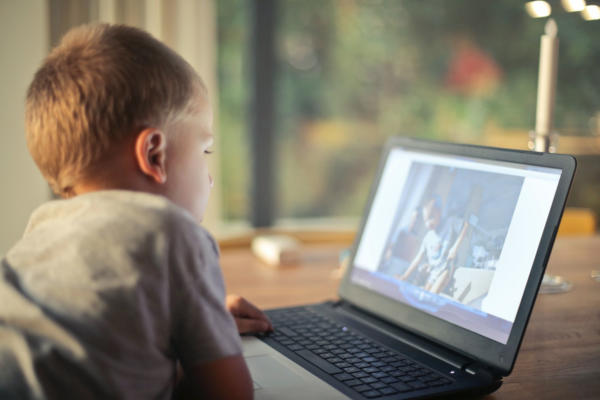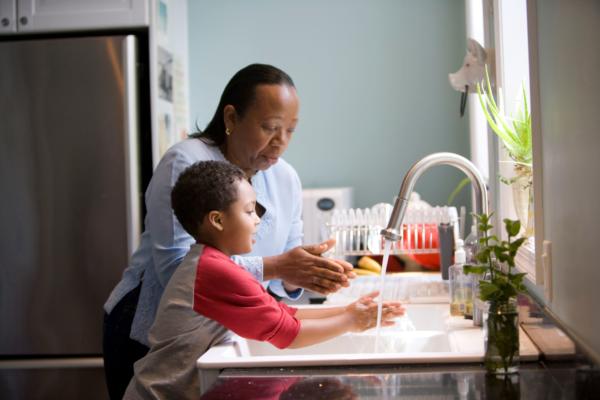“Mum, we should do this tomorrow in learning time” says my 11-year-old daughter. She presents a picture of a family who have created the solar system in papier mache. I managed to keep my thoughts to myself as I mumbled something about only being able to shop for essentials and quickly changed the subject.
Homeschooling, crisis schooling, crisis teaching – just some of the phrases being used to describe what parents and carers across the country are being invited to do as our schools remain closed to most children.
For most families this is a new experience that presents its own set of challenges. For many it changes the balance between work, family and school life in a whole new way. For some families caring for children who have experienced trauma, this is a time where that additional pressure is amplified. For others it’s providing a window of opportunity to remove some of the school associated stress.
>
Here are four reasons why some adoptive or fostering families may be experiencing additional challenges with home learning.
1. Loss of the school routine
Routine, structure and familiarity are some of the building blocks that help vulnerable children (in particular, though not exclusively) feel safe. Without the felt safety that the rhythm of going to school provides, children can feel more frightened and unsettled. This is amplified in children who have experienced trauma because it can trigger memories (conscious or not) of change, upheaval or loss from earlier in life.
These feelings are often communicated through challenging behaviour because it can be hard for a child (or people of any age) to connect this instinctive fear response that’s present because of trauma, to the lack of security that comes from missing school.
When a parent or carer attempts to step in to teaching their child it can be a reminder of the lack of teachers or friends they love, a trigger to feelings of anxiety around what may happen next or uncertainty at the sudden change in dynamic, or frustration at parents or carers not equipped to teach in the way that is familiar to them in school.
>
2. Catering for all abilities in one kitchen
My current class only has four pupils – but they range from 1 to 13 years old. That’s three different school years and key stages, a huge mix of academic ability, willingness and experience.
In homes where there is more than one child, the variety of ages, needs and resources on offer can make it impossible for a parent or carer to be able to fully engage with all the children in their new ‘class’ in a way that makes learning accessible (or possible!) particularly when these parents or carers might also be trying to juggle their own changing work context.
This is the case for many families. However, children who have experienced trauma are more likely to have additional needs that make learning of any kind, particularly academic learning, more challenging. Blended families that include adopted, fostered and birth children, or varying combinations, can also find the issues around the range of ability and need are amplified and bring additional challenges of resentment, jealousy, shame and anxiety.
>
3. Additional learning needs
The vast majority of children who have experienced care are entitled to additional support within the school setting, whether this is the Pupil Premium Plus, an Education, Health and Care plan, a Personal Education Plan or something else. This is because it is widely understood that every looked after and care experienced child will need some level of additional support to thrive at school, be it emotional, social or educational.
Many children should therefore receive excellent support in a school or learning environment from professionals who are trained, equipped and experienced to help them learn in a way that is more accessible to their abilities and supportive of their needs. While parents and carers tend to become experts in the children they care for, formally educating their children is not usually a part of that role.
Across the country, teaching staff are working hard in many different ways to make lessons available to students. But for those with complex needs, remote learning in whatever format isn’t always possible, relevant or accessible.
>
4. Learning independently (or not)
Much of the work being provided by schools, particularly for older children, is intended to be learnt independently, but for children who are struggling this just isn’t possible most of the time. At a time when there is elevated anxiety in children and young people, they need reassurance. This is often demonstrated by proximity to their parent or carer. Without them near, they may not be in the right place to work, making independence non-conducive with learning.
Similarly to this, some learning is taking place online through video calls and some children (like my son, who I wrote about here) really struggle with this.
Again, all this puts huge pressure on parents and carers, as they juggle the many different priorities in their home.
>
But there is a different story…
School anxiety is commonplace amongst vulnerable children. The many variables, changes and unknowns within a ‘normal’ school day, added to the variety of challenging social interactions means that – while school is often a place they want to be – it can also an incredibly difficult environment for them.
Trauma rewires the brain to perceive threat even where there isn’t any. While every child is different, this constant feeling of fear leads to emotional dysregulation that can manifest in challenging behaviour.
When you remove some of these external factors (including school) there is opportunity for a child to feel more emotionally regulated and less fearful. This helps the brain switch out of fight / flight / freeze mode, freeing them to focus on learning.
It also helps that they can learn at a different pace. There’s a greater element of choice, and they can be with those whom they feel most comfortable.
For some families, child-focused learning where the timetable is flexible to fit with how each child is emotionally can help reduce conflict. For instance, on a day where anxiety is high, parents and carers can focus on attachment, helping their children regulate emotions and leave formal learning to another time.
Every child, every family, circumstance and experience is different. Whether it’s easier, harder or a mix of both, here are four final brief thoughts as you navigate this season.
>
1. Comparison steals your joy
The internet is a wonderful thing. However, it can make us feel like we’re failing when we compare our everyday experience with someone else’s highlight reel. You’re the expert in your family – do what works for you.
>
2. Education is much more than schoolwork
Maths and English are important but so is the ability to cook, play games, take turns, to hoover and clean. Writing letters and making cards, creating artwork or using other digital formats to express ourselves are important things to learn too. While these things are not without challenge (I have to psyche myself up to play a board game with my ‘class’), they are also part of helping our children grow.
>
3. Practice playfulness
Whether you and your children love learning at home or you’re avoiding like the plague anything even close to maths, be playful. Playfulness grows connection with our children, can be part of repairing some of the trauma that has wrongly wired in their brains and it can make the seemingly mundane a little more bearable.
>
4. Draw near to God
On our own we quickly run out of strength. As Christians we follow a God who has endless strength, which He promises to us when we draw near to Him (Isaiah 43:29-31). In the snatched moments in the bathroom, during a quiet two minutes, whether you’re at your wits’ end or you’re celebrating three sentences successfully written, God is our ever-present help and strength (Psalm 46).











